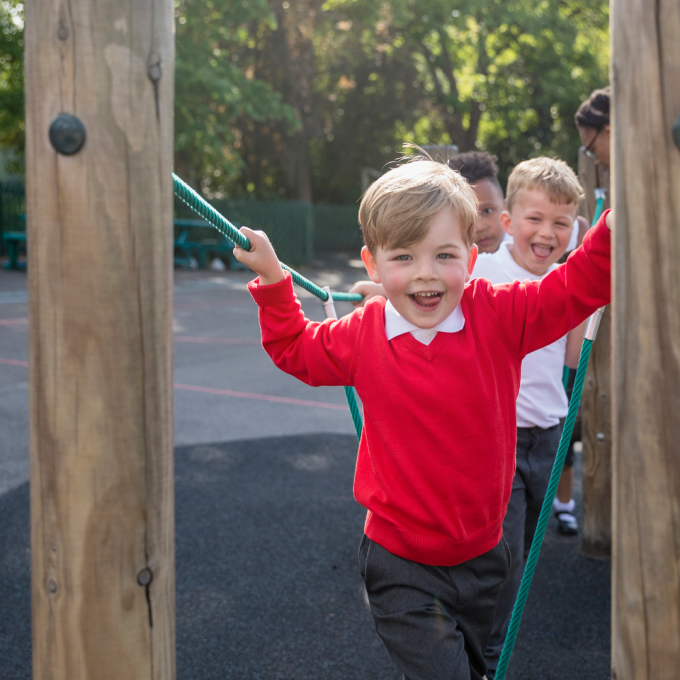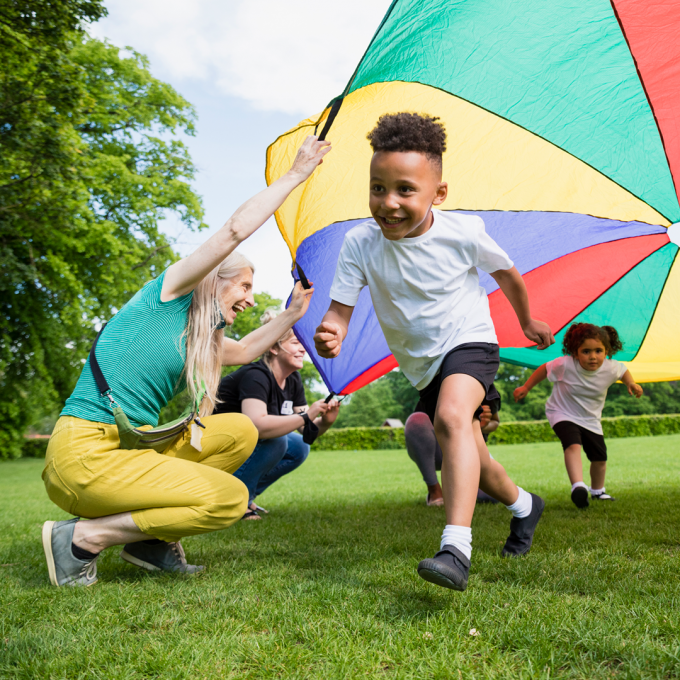School reopenings - Let's put the curriculum to one side and focus on mental health
There has been plenty of guidance on how the disruption to children's education can be managed, particularly for those who were due to sit exams or transition to a new school.
However, there has been less focus on how this disruption will affect young people's mental health and emotional wellbeing and the role schools can play in mitigating this.
Children with existing mental health problems will undoubtedly have suffered as a result of the upheaval and stress of Covid-19, while for others, the last few months will have meant additional pressures and a lack of routine that will have adversely affected their mental health.
There have been more than 35,000 coronavirus deaths so far, which will mean loss and grief in almost every community.
Teachers will be facing more than just disruption to their pupils' education.
They will need to deal with young people who may be severely traumatised having endured bereavement, witnessed family arguments or even domestic abuse or been worried about financial stress because of redundancy or furlough in the family.
When they have to make the adjustment of returning to school, children are likely to display a range of behaviours, meaning that teachers may encounter confused and distressed children communicating their needs by acting out.
Stressful situations bring about the flight, fight or freeze responses in children.
Some will be hyper-vigilant and on high alert, others may be very needy and require constant reassurance.
Instances of OCD, anxiety and aggression are likely to rise, while some pupils will have closed down emotionally.
There will also be children who have enjoyed spending more time with their families during lockdown and experience distress at having to leave the safety and security of their homes to go back to school.
This melting pot of different responses will mean disruption to normal classroom routines through distressed behaviour at a time when teachers will be under pressure to play catch up in terms of attainment and when their own mental health will have suffered as a result of their own experiences during lockdown.
I believe the only way that schools can respond to this challenge is to set aside the temptation to focus on lost attainment time and, instead, to give the rest of the academic year to helping children readjust to their 'new normal' as they settle back into a school routine.
Taking the pressure off pupils - and themselves - will allow teachers to prioritise helping children to recover emotionally so that, when they return in September, they can then consider attainment and what needs to be put in place to make the necessary progress.
The remainder of the summer term can then be a time of re-engaging and recovery for teachers and pupils so that they are able to come to terms with an unprecedented few months.
The lesson that self-care and rest are necessary after a stressful experience is a valuable one. I hope that schools will be allowed to adopt this approach, especially those in the independent sector, where there can be pressure to demonstrate value for money in terms of fees.
As a society, we have come to think of education as being about achievement in exams and assessments rather than the much broader concept it actually is.
Schools can offer pupils so much more than curriculum-based learning.
They can, and should, give children the opportunity to understand their own experiences so that they can respond to difficult situations in an appropriate way rather than reacting through distressed behaviour.
Taking this pause to focus on wellbeing would also benefit teachers. They, too, will have found the last few months incredibly difficult.
As well as the demands of switching to an entirely new way of working, possibly while supervising home-schooling for their own children, they may have had to contend with feedback from anxious parents worried about how much, or how little, their children are being given to do.
Allowing teachers to take time to rest and recover, while focusing on the wellbeing of their pupils, is what they need - not a desperate race to the curriculum finish.
This approach would give schools the opportunity to focus on the relationship between teacher and pupil.
Teachers have a hugely important role to play in helping children to navigate their way through the confusing and difficult feelings that will come up around Covid-19.
Children can't learn properly unless they feel safe, secure and calm. A child can then think rationally about the situation they are in and to understand that there are things they can do to get their own needs met.
They will also be able to develop a level of emotional resilience.
Social distancing measures can make a familiar environment look unfamiliar to children. By focusing on their relationship with pupils, teachers can ensure that physical distancing does not mean emotional distancing.
For any schools who do not have adequate therapeutic and emotional support embedded within their setting, now would be a very good time to put this in place.
As we come out of this crisis, children's emotional needs will be immense and must be addressed before even contemplating formal learning.
In terms of lesson planning, there are some simple ways that teachers can draw near their pupils emotionally.
They should be prepared to listen and to hold space for children, taking advantage of fewer numbers of children in school to make time for them.
By being present for children and really listening to them and letting them know that teachers, too, have struggled, this will help pupils to realise that their feelings are normal and healthy and will encourage them to process these complex emotions, rather than pushing them down and pretending they are not there.
In terms of activities, longer play time will help children to use exercise and movement to release emotional energy. Creative activities, including art and writing, will help to strengthen and reconnect relationships.
Time spent in nature and mindfulness will also facilitate emotional wellbeing.
In some ways, putting the demands of the curriculum to one side for the last few weeks of term is a brave step that goes against much of the ethos of the modern education system.
But the reality is that social and emotional wellbeing is the foundation that learning is built on.
If this foundation is not solid and well-established then children will be unable to move forward with attainment.
The current situation, for all its loss and challenges, could be a real opportunity for children to learn about emotional literacy and how to develop the essential life skill of resilience.
As schools begin reopening, they have a real opportunity to help develop emotional literacy among our children - something that will help them to truly thrive in life.
As a society, we should be brave enough to allow our schools to take this approach and accept that it will not be business as usual straight away.
Lee Prichard was a teacher for 20 years and now works for Thrive, training teachers and other education professionals in supporting children's emotional and social development. One of the key aspects of the Thrive Approach is the idea of authentic connection and relationship between a teacher, or other educational professional, and their pupils. The training is underpinned by attachment theory, neuroscience and child development.
Over to you
Reduced anxiety and behavioural incidents. Calmer classrooms filled with engaged leaners. Improved relationships with parents and carers. These are just some of the outcomes reported by settings embedding Thrive’s whole-school approach to mental health and wellbeing. Are you ready to join them? Click here to get started.
Pass it on
Small actions can lead to a big ripple effect. If you enjoyed this post or found it helpful, please consider supporting us in our mission to help every child and young person feel safe, supported and ready to learn by sharing it using the social media buttons below.
Want to join a like-minded community of senior leaders and classroom staff benefitting from insights and strategies to improve attendance, behaviour and attainment? Add your email address below. (It’s easy to unsubscribe).

_680.jpg)
(1)(1)(1)_680.jpg)


(1)_680.jpg)
